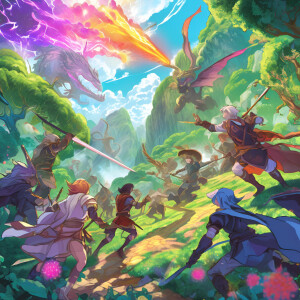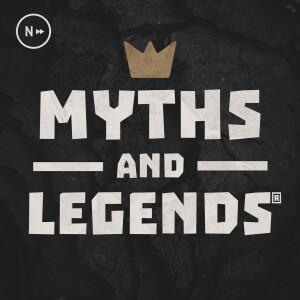

Robots From Tomorrow!
https://robotsfromtomorrow.libsyn.com/rssEpisode List
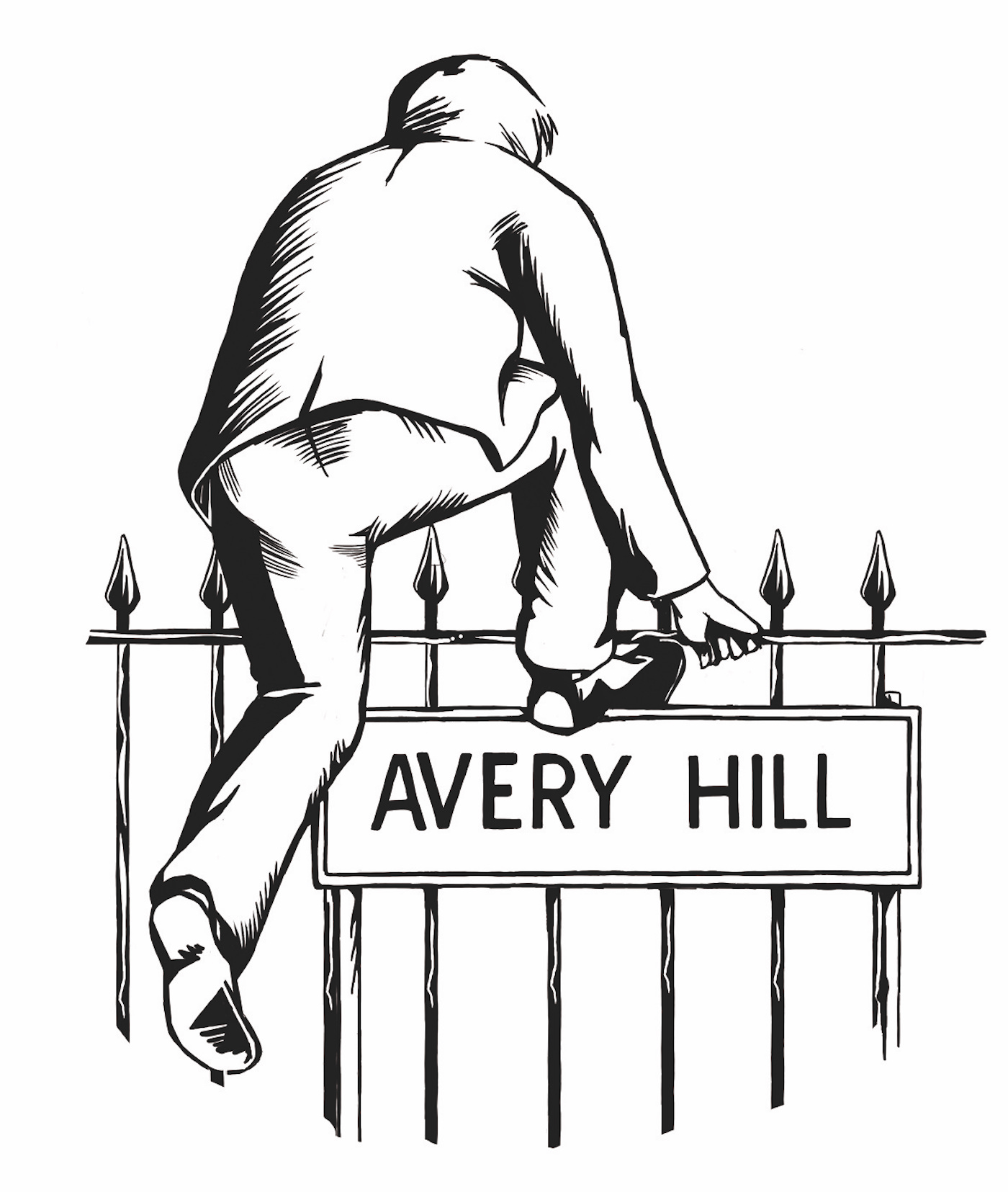
Ricky Miller on AVERY HILL PUBLISHING
There’s an ecosystem to comics publishing, like everything else. You’ve got your Marvel & DC/Big Two on one end of things, your single cartoonist stapling their first minizines that they ran 20 copies off of the printer at their day jobs at the other, and many points in-between. And it’s one of those intermediate options, Avery Hill Publishing out of South London, England, that is the focus of today’s show. Going back to the earlier example, Avery Hill is probably much closer to the cartoonist than the corporations. And this makes sense when you look at their output. On their website, the publisher described itself as: “Helping aspiring creators reach their potential and … a home to the geniuses that the mainstream has yet to recognise ... Our canon includes psychogeographical mappings, eco-anarchist wizards, boat-shaped coffins, an all-female/non-binary construction crew (in space), a bad canine named Greasy, and much more." Avery Hill has positioned itself to be an option for up & coming creators, a model that has worked for them with many cartoonists, including Tillie Walden, who published the first works of an Ignatz- and Eisner-lauded career, THE END OF SUMMER and I LOVE THIS PART, at Avery Hill almost ten years ago. To find out more about Avery Hill’s place in the comics landscape, what that landscape looks like for them in 2025 and beyond, and to talk about their newest release, Kit Anderson’s sci-fi graphic novel SECOND SHIFT just out last month, today's episode is a chat with Avery Hill co-publisher Ricky Miller. [This episode is number 817 in a series.] CHAPTERS 00:00 - Preamble 01:37 - Early Days and Inspirations 05:50 - Transition to Publishing 09:15 - Discovering New Talent 18:05 - Kickstarter and Business Model 20:11 - Day-to-Day Operations at Avery Hill 22:30 - Balancing Creativity and Practicality 23:03 - Impact of the Internet on Talent Discovery 23:48 - Challenges of Social Media for Creators 24:37 - Finding New Talent in the Modern Era 27:52 - Kit Anderson's Journey with Avery Hill 30:19 - The Appeal of Sci-Fi in Comics 36:43 - Avery Hill's Editorial Approach 38:59 - Upcoming Projects and Future Plans 42:54 - Avery Hill at Comic Shows 44:46 - Outro
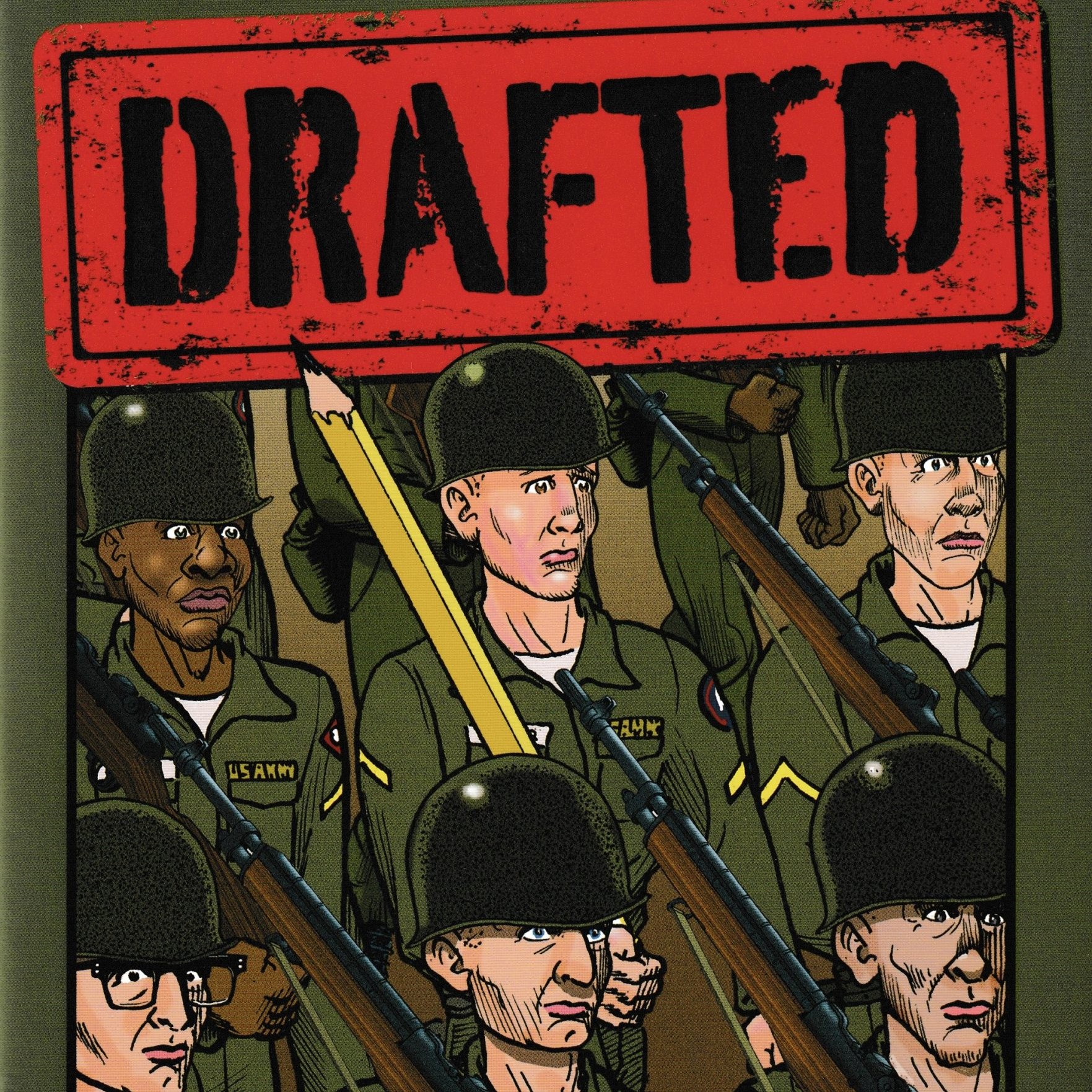
Rick Parker on DRAFTED
In his latest graphic novel DRAFTED, readers can see how math did cartoonist Rick Parker absolutely no favors in trying to stay out of the military during the height of the Vietnam War. The 256-page book, which is the first of Parker's career that he has written AND illustrated, covers that three year period of his time in the U.S. Army in autobiographical detail both funny and heartbreaking. After being honorably discharged, the cartoonist would eventually get a job at Marvel Comics as a letterer for such titles as G.I. Joe and the Spider-Man line for most of the 1980's. In 1994 he took on full cartooning duties for the BEAVIS & BUTTHEAD series for Marvel, producing 28 issues of humor in that particular vein until the title was unceremoniously cancelled in 1996. Later work ranged from books at Papercutz and work at the Morgan Stanley bank creative services department, among other spots in between. Today Greg is talking with cartoonist Rick Parker about his book DRAFTED, the career leading up to it, and hopefully a little bit about what’s coming up next. Fingers crossed there will be no math. [This episode is number 816 in a series.] CHAPTERS 00:00 - Preamble 01:37 When did you start thinking about the book? 08:38 When did you start working on it officially? 13:38 How did you go about researching the book? 16:39 How much work does Rick Parker the writer do before Rick Parker the artist starts working? 30:26 What did your time in the Army reveal to you about yourself? 41:20 How did DRAFTED get from your drawing table to Abrams? 45:01 What is the editor’s role in a project like this? 49:34 What’s on your drawing table right now? 52:37 Comics can be a lonely job and a communal job at the same time. Talk about maintaining industry connections over the length of your career. 54:46 Outro
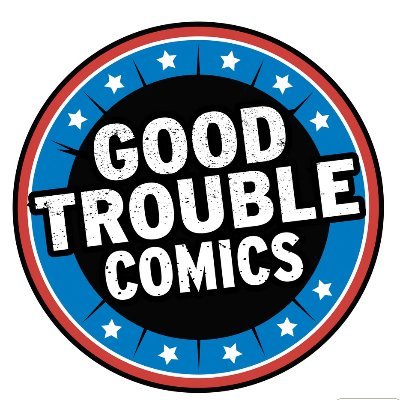
Andrew Aydin and GOOD TROUBLE COMICS
We live in troubling times. Turn on the news or your phone and that seems to be all there is: trouble. But according to John Lewis, the late U.S. Congressman from Georgia’s 5th District, trouble… doesn’t always HAVE to be bad. In fact, there can be GOOD trouble that helps you deal with all the bad. Carrying the Congressman’s message of GOOD trouble into these times we find ourselves in, is the Congressman’s former staffer, writing partner, and steadfast ally Andrew Aydin. Andrew’s publishing venture Good Trouble Productions is built on the foundation of that message of GOOD trouble, and is the focus of today’s episode. Good Trouble Productions, through its Appalachia Comics imprint, is running a Kickstarter campaign for ISLANDS IN THE SKY, a 112-page comics anthology to benefit the survivors of last year’s Hurricane Helene that pairs actual survivors with comics writers like Brian Michael Bendis, Matt Fraction, Gene Leun Yang, Greg Pak, Alex Segura, and more to capture their own accounts on the storm and its aftermath. The Good Trouble Comics imprint is home to titles like the LGBTQ anthology RECOGNIZED, the historical reprint series COMICS OF THE MOVEMENT, and REGISTER! a new series about history and an extraordinary group of teens. And finally, talks swings back to Appalachia Comics for MONSTER APPRECIATION SOCIETY, where Andrew and artist Johnathan Marks Barravecchia delve into the horror genre with all manner of monsters lurking in the namesake mountains: Bigfoot, The Moon-Eyed People, and the worst monsters of them all: real estate developers! [This episode is number 815 in a series.] ****************************** CHAPTERS 00:00 – Preamble 00:46 – Intro 03:12 – ISLANDS IN THE SKY Kickstarter Campaign 04:04 – Pairing Survivors With Comics Writers To Tell Their Stories 10:57 – Hurricane Helene From Andrew's POV 17:06 – Getting The Word Out About Appalachia and Helene 22:25 – Alternate Distribution Models with Etsy & Kickstarter 28:33 – The Beginnings of Good Trouble Productions 33:16 – What Makes a Comic a Good Trouble Comic 38:07 – Register! (With An Exclamation Point) 40:20 – MONSTER APPRECIATION SOCIETY 47:07 – Outro ****************************** Go to the episode page at: https//robotsfromtomorrow.net/andrew-aydin-good-trouble

Spotlight on Colleen Doran @ HeroesCon 2024
Today’s episode comes directly from this year’s HeroesCon in lovely Charlotte, NC. Greg had the opportunity to host a few panels this year; the first of which was this spotlight on cartoonist/illustrator Colleen Doran. As described in the show programing guide: Her work has garnered more nominations and awards than we have space to list here, but trust us, it’s a looong list. Eisners, Bram Stokers, Harveys, Hugos, inclusion in the Best American Comics series… when discussing COLLEEN DORAN’s career as a cartoonist and illustrator, there are so many highlights only the bravest of souls would try and host a panel looking to take stock of them all. T hankfully for HeroesCon, GREG MATIASEVICH (Multiversity Comics) has taken up the challenge. Come see how he does in conversation with one of the best artists working in comics, or any other field, today! [This episode is number 816 in a series.] ****************************** CHAPTERS 00:00 – Preamble 01:26 – Intro 02:52 – How has it been adapting Gaiman’s prose work to comics? 08:41 – What’s your process like when you’re working from someone else’s material? 21:48 – What is the status of A DISTANT SOIL, and how different do you think your career would have been if you hadn’t had a creator-owned project like it to start your career with? 22:51 – Which word is more important for a creator to know – yes or no? 24:12 – What are some working tips from your freelance career that you think every creator should know? 39:53 – Remembering Keith Giffen 42:23 – Who was the last big art revelation you had? 44:06 – Is it possible to divorce illustration from storytelling? 45:19 – Do you think the American market will ever appreciate how much of comics ‘writing’ is done by the artist? 51:15 – Outro ****************************** Go to the episode page at: https//robotsfromtomorrow.net/colleen-doran-hc24
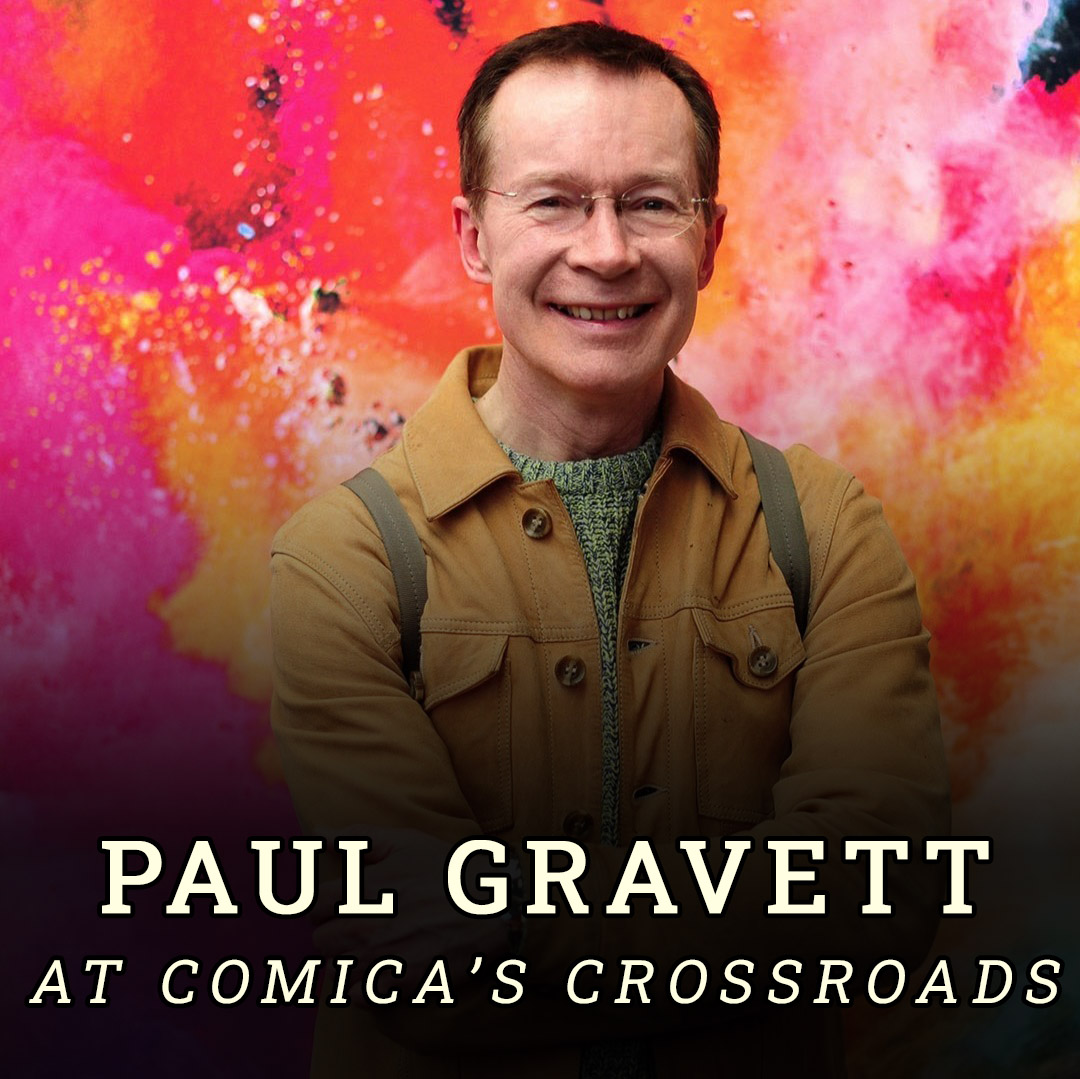
Paul Gravett: At Comica's Crossroads
"The cycle of renewal in art is peddled by the periodic influx of stuff from somewhere else. That’s why you need a man at the crossroads… He will be the purest, most fresh faced wee fellow you have ever met. His ingenuous enthusiasm will beam from his cheery countenance." -- Eddie Campbell on Paul Gravett, ALEC: HOW TO BE AN ARTIST Today’s guest is Campbell’s Man at the Crossroads, and he has been observing, studying, and directing comics traffic for over 40 years. As this fellow’s understanding of its ebbs and flows has grown over that time, so has his endeavors in making sense of it for himself. And thankfully, Comics fans around the globe. He’s written at least seven books, including Mangasia, the definitive guide to Asian comics, which has been transformed and translated into reality as the touring exhibition: ASIAN COMICS: EVOLUTION OF AN ART FORM. The Barbican website describes the exhibit at The Bowers Museum in Los Angeles, CA as "with a team of more than 20 international advisors, ASIAN COMICS features over 500 works, the largest selection of artworks from the continent, including Japanese woodblock prints, Hindu scroll paintings, digital media, printed comics, and contemporary illustrations. This unique exhibition is a gateway to an unexplored world of graphic storytelling and its artistic value." He’s also an accomplished editor and anthology curator. Among the books he’s assembled have been 2011’s 1001 Comics You Must Read Before You Die, which is a fantastic title, and The Mammoth Book of Best Crime Comics. He’s contributed to countless periodicals and documentaries about comics. He’s published one of the best comics magazines of the 1980s, Escape, with partner Peter Stanbury, giving a platform to such creators as James Robinson, Dave McKean, and Neil Gaiman. He started Comica, the London International Comics Festival with John Harris Dunning in 2003. He gives lectures, he hosts panels, and he continues to be one of the most respected comics patrons of his generation. Frankly, it’s been exhausting just narrowing down his endeavors to a reasonable summary for this blog post. He's Paul Gravett and he joins Greg today to talk about comics in all their wonderful forms and many varied locations. [This episode is number 818 in a series.] ****************************** CHAPTERS 00:00 Preamble 02:50 Intro 05:40 “I want to know about everything…” 06:17 What was the first thing you learned that gave you your paradigm shift of what comics could be? 08:28 Shonen Magazine / Fishing Crazy Senpai 10:32 “No nostalgia, no loyalties, no limits” 12 36 How do you keep all these perpendicular lines of comics in your head? 17:52 "An unlimited multiversity to comics" 19:53 Photo comics & Gregory Crewdson 22:11 Jayme Cortez 24:18 Comics 1964-2024 27:20 Sawwaf Collection 29:31 Lusanne / Taiwan 32:27 Lodz Poland 33:19 Posy Simmonds 35:40 ASIAN COMICS 37:10 Talk about your growing understanding of Asian comics as you were working on the books and the exhibition. 41:38 Is the diversity of Asian comics and inspiration to you about the future of comics? 44:05 Comics preservation in the Philippines and Mexico 50:41 How important is humility (or lack thereof) when putting together an anthology or exhibition? 57:25 Talk about your working relationship with your partner Peter Stanbury. 1:02:25 Comics 1:06:00 Outro ****************************** #1001comicsyoumustreadbeforeyoudie #Angouleme #asiancomics #comics #comix #comicbooks #graphicnovels #comica #escapemagazine #manga #manhwa #paulgravett #peterstanbury #posysimmonds
Create Your Podcast In Minutes
- Full-featured podcast site
- Unlimited storage and bandwidth
- Comprehensive podcast stats
- Distribute to Apple Podcasts, Spotify, and more
- Make money with your podcast




